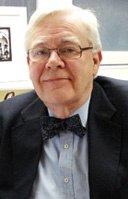Keywords: Hadith, qadim, Islamic theology, Qur’an(also Koran. Arabic term meaning, ‘recitation’ or ‘scripture’): Muslims believe that the Holy Qur’an contains divine revelations to the Prophet Muhammed received in Mecca and Medina over a period of… More, wujud, essential contingency, temporal contingency, Zad al-musafirin, divine will (iradah), al-Ghazali, kalam, mujid, Ash‘arite.
Abstract: No distinction is so fundamental to Islamic thought nor perhaps so all-encompassing as that between the eternal and the created-in-time. The eternal is applied properly only to God, whereas the created-in-time applies to everything else without exception, from the stars in their seemingly enduring courses to the least scratching of an ant upon a stone at our feet. It is the contrast, the opposition itself, which is instructive and fertile for reflection.
Things are explicable through their contraries “bi-diddiha tatabayyan al-ashya” (al-Hamadani 1962:187). Through the created and contingent we come to recognise the eternal and self-subsistent. The impermanence of the world reminds us unceasingly that there is another permanent and unceasing world.
The contrast between the eternal God and mere transient and contingent being is nowhere more vividly and poignantly expressed than in certain old Muslim graveyards where the grey, tilting, columnar tombstones are exquisitely incised with the stark and confident affirmation: “God is the enduring one” (huwa al-baqi). Mere dust, the hidden remains of the pious bear witness by their very insubstantiality to an equally invisible but unchanging reality which cannot decay.
Author

Professor Eric Ormsby
Former Deputy Head of the Department of Academic Research and Publications at The Institute of Ismaili Studies, Professor Eric Ormsby has held positions with several university libraries and collections in North America including: Director of Libraries at The Catholic University of America in Washington, D.C. from 1983-86; Director of Libraries at McGill University in Montreal, Canada, and Associate Professor in McGill’s Institute of Islamic Studies from 1983-86; and from 1996 to 2005, full Professor and Director of the Institute of Islamic Studies, McGill University.

